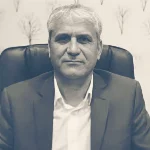
Dr. Mohammadhassan Heidari is an experienced Radiation Oncologist in Dubai with over 18 years of clinical experience in oncology, radiotherapy, […]
Chemotherapy is a systemic cancer treatment that uses powerful drugs to destroy or slow the growth of rapidly dividing cancer cells. It circulates throughout the body via the bloodstream, making it effective for cancers that have spread (metastasized).
✔ Primary Treatment: For cancers highly sensitive to drugs (e.g., leukemia, lymphoma).
✔ Adjuvant Therapy: Kills residual cells after surgery/radiation.
✔ Neoadjuvant Therapy: Shrinks tumors before surgery (e.g., breast cancer).
✔ Palliative Care: Eases symptoms in advanced cancer.
| Category | Example Drugs | How They Work |
|---|---|---|
| Alkylating Agents | Cyclophosphamide | Damage the DNA to prevent replication |
| Antimetabolites | 5-Fluorouracil (5-FU) | Mimic nutrients to starve cells |
| Plant Alkaloids | Paclitaxel (Taxol) | Block cell division |
| Targeted Therapy | Trastuzumab (Herceptin) | Attack specific cancer markers |
Common:
Long-term:
Management: Anti-nausea meds, growth factor injections, cooling caps for hair preservation.
Q: Does chemo always cause hair loss?
A: No—depends on the drug (e.g., taxanes often do; targeted therapies usually don’t).
Q: Can I work during treatment?
A: Many do, but fatigue may require adjustments.
Q: How is chemo different from radiation?
A: Radiation is localized; chemo is whole-body.

Dr. Mohammadhassan Heidari is an experienced Radiation Oncologist in Dubai with over 18 years of clinical experience in oncology, radiotherapy, […]

Dr. Maryam Mirzaei Moghadam is a highly skilled radiation oncologist in Tehran specializing in chemotherapy, radiotherapy, and advanced cancer treatments. […]

Dr. Shadi Zohourinia is a skilled radiation oncologist in Iran specializing in the prevention and treatment of adult cancers. Treatment […]

Dr. Pedram Fadavi is a notable radiation oncologist and an Associate Professor at Iran University of Medical Sciences (IUMS) in […]

Dr. Helaleh Khoshbakht is a highly respected radiation oncologist in Tehran with extensive expertise in treating various cancers, including breast, […]

Dr. Shiva Moghadam is a highly accomplished radiation oncologist in Tehran, Iran, currently serving as: Academic Board Member at Motamed Jihad University […]

Dr. Reza Khodabakhshi is a distinguished radiation oncologist with extensive clinical and academic experience in cancer treatment. He earned a fellowship in Medical […]

Dr. Bahram Mofid is a distinguished radiation oncologist based in Tehran, Iran, known for his contributions to cancer treatment and […]

From Personal Experience to Professional Passion Dr. Monir Mirai is a dedicated radiation oncologist in Tehran whose career path was […]

Dr. Hossein Foudazi is a prominent radiation oncologist based in Tehran, Iran, who has a significant role in the field […]

Dr. Reza Malayeri is a highly respected hematologist and medical oncologist based in Tehran, Iran, with extensive expertise in diagnosing […]

Dr. Mohammad Shakouri is a board-certified hematologist and oncologist with 13+ years of experience in diagnosing and treating: Blood disorders (thalassemia, hemophilia, favism) Blood cancers (leukemia, […]